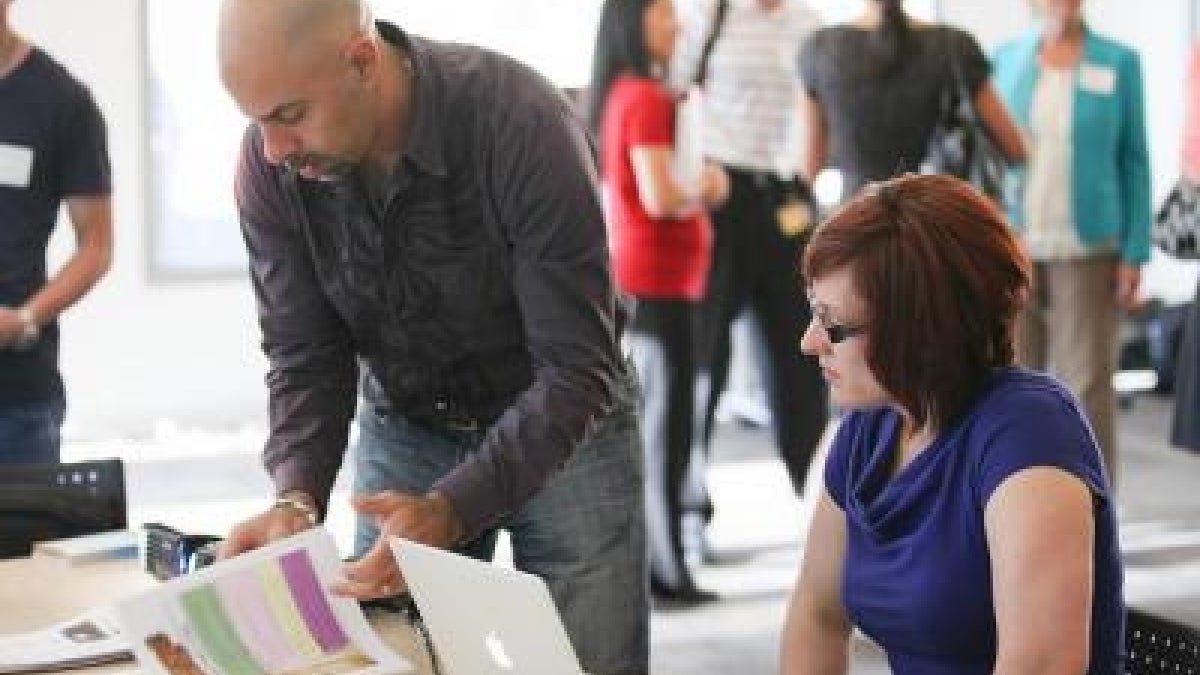New education degrees keep pace with today's school needs

Three new master's degree programs offered in ASU's Mary Lou Fulton Teachers College are aiming to prepare educators with the updated skills necessary to excel in today's increasingly complex teaching and learning environments.
Now providing 17 master's degree programs in education, Teachers College has added these three new options:
• Master of Arts in Educational Policy
• Master of Arts in Learning Sciences
• Master of Education in Educational Leadership
Data analysis
Teachers College associate professor Jeanne M. Powers said she expects the newly revised master’s in educational policy program to attract a mix of candidates with a variety of aspirations.
Central to the program of study is applied data analysis. However, core coursework is taught only one night a week, allowing the student to work with a faculty member to customize elective courses to individual educational needs and interests.
“I think it’s the kind of degree that is relevant and useful for people with a range of career goals,” said Powers, who oversees the program. “It could provide introductory research training for a student who plans to pursue a PhD or serve as a stand-alone master’s degree. For educators, it potentially could lead to an in-house data analysis position with a school district or help them develop expertise in higher education or special education if they select electives in those areas.”
Powers explained that master’s candidates in educational policy might also draw research problems from their own workplaces where data-driven decision-making is required. She cited examples of students in the program studying data from K-12 settings or college students to provide their organizations with analyses to better serve their student populations.
“We want to help people understand statistical analysis so they can use statistics competently and well,” Powers said. “When you don’t have a background in statistics, it’s easy to misinterpret data or not know how to dig underneath the numbers and think critically about them.”
Sustainable learning and teaching
Among education’s fastest growing fields is learning sciences. According to assistant professor Steve Zuiker, the all-new master’s program at Teachers Colleges is tailored to innovators in a variety of learning organizations.
“I think the learning sciences program resonates with ASU’s idea of knowledge enterprise,” explained Zuiker, who directs the program. “Its appeal is in its interdisciplinary concentration. Compared to other educational programs, it resolves a different focus by looking at learning and teaching systems as they operate within and across sites.”
Launching in August, the learning sciences master’s program is casting a wide net looking for candidates from across the educational sector. In addition to obvious recruiting at K-12 schools and district offices, the program is reaching out to other organizations that emphasize learning and talent development, such as large-scale businesses and museums, Zuiker explained.
He said the new master’s in learning sciences program builds on the success of the college’s master’s in educational technology. Whereas the educational technology program focuses on mastering increasingly sophisticated tools, the learning sciences program focuses on design, taking the next step to determine how social and technological innovations can systematically enhance learning.
“One of the powerful things we’ve learned is that learning systems can be driven by learner interest,” Zuiker said. “A familiar example would be designing a field trip. It doesn’t begin and end with the visit, but rather creates opportunities for students to mobilize interests that connect the field trip with a project and their families.”
New leadership opportunities
More and more, experienced teachers in America’s K-12 schools are not only being groomed for the principalship, they also are being tapped for school leadership positions that allow them to stay in the classroom. The growing roster of teacher leader roles includes such titles as learning facilitators, master and mentor teachers, academic coaches, school team leaders, data coaches and instructional and curriculum specialists.
To ready educators for expanding opportunities, Teachers College has morphed its grant-funded iLeadAZ program for aspiring principals into two complementary pathways: the iLeadAZ Principal Residency pathway and the iLeadAZ Principal Internship pathway. Both pathways lead to a master’s degree in educational leadership and principal certification. Clinical associate professor Carl Hermanns said the newly designed degree program incorporates the research-based components of the highly successful iLeadAZ model into both pathways in a way that provides a sustainable program that can serve school districts statewide.
“Research clearly indicates that iLeadAZ is the type of model that most effectively prepares the kind of transformative principals that our children, families and Arizona schools need,” said Hermanns, director of the master’s program.
At the same time, Teachers College recognized that school success depends not only on strong principals, but also on strong teachers and strong teacher leaders, he explained. So the program developed its new dual-pathway program where great classroom teachers can receive essentially the same leadership training in the internship cohort as those aspiring principals in the residency cohort who are working in non-classroom teaching positions. Differences between the pathways in emphasis and residency/internship requirements accommodate the students’ immediate career aspiration and trajectories.
“When both groups receive similar training in the essential elements of effective school leadership, you’re actually leveraging the components for successful school transformation,” Hermanns said. “When you have principals and teacher leaders who are on the same page, with similar training, the components come together and are multiplied for school success.”
Written by Judy Crawford